- Featured
- Clean air
- Climate justice
- Consumer Rights
- Corporate Accountability
- Data access
- Early Childhood Development
- Economic fairness
- Education
- Electoral fairness
- Environmental justice
- Food justice
- Gender based violence
- Grants/social assistance
- Health
- Housing and infrastructure
- Industry interference
- Land Justice
- LGBTQIA+ rights
- Media/ information access
- Public transport
- Racism
- Reparations
- Safety
- Sanitation
- Service Delivery
- Sexual and Reproductive Rights
- Social justice
- Unemployment
- Womxn's rights/ gender equality
- Workers' rights
- More
-
Godongwana forced to scrap VAT hike. Tell him to increase Sugary Drinks TaxHealth activists, everyday people, and health experts have gathered year after year to demand an increase on the Sugary Drinks Tax. It’s time that Godongwana and Treasury listen! Every year that Treasury delays increasing the Sugary Drinks Tax to its most effective 20% rate, it chooses to lose R2.7 billion in revenue, money that the country desperately needs. The sugar industry has tried different tactics to delay and scrap the Sugary Drinks Tax. They even went as far as to exaggerate statistics regarding claims that the Sugary Drinks Tax causes job losses, when research from Trade and Industry Policy Strategies found otherwise [1]. We call on Treasury and Minister Godongwana to finally listen to us and increase the Sugary Drinks Tax. You cannot continue to put industry profits before people’s health. References [1] Researchers challenge cane growers’ claims that sugar tax killed jobs, by Tamar Kahn for Business Day, 11 June 202444 of 100 Signatures
-
#JusticeForCwecweWhy Should Bergview Past Pupils Sign the Petition? Because we know what it should feel like to be safe at school. Because we walked those corridors. Sat in those classrooms. Because we were once those learners — and we know they deserve better. Signing the petition is not just about showing solidarity. It’s about standing up against the gross violations of learner safety happening at our former school. It’s about using our voices and influence to demand accountability, change, and protection for the next generation. We cannot be silent while learners are unsafe in a place meant to empower them. Let’s make sure Bergview lives up to the values it taught us. South African schools have a legal and constitutional duty to safeguard the safety and well-being of all learners. Section 28(2) of the Constitution of the Republic of South Africa asserts that “a child’s best interests are of paramount importance in every matter concerning the child.” This principle is operationalized through the South African Schools Act 84 of 1996, which obligates schools to implement reasonable measures ensuring learner safety on school premises and during school activities. The Children’s Act 38 of 2005 further mandates that any individual responsible for a child—including educators and school governing bodies—must protect them from maltreatment, abuse, neglect, and degradation. Judicial interpretations have reinforced these obligations. In the case of MEC for Education, North West Province v Izak Boshoff Foster and Others [2023] ZASCA 11, the Supreme Court of Appeal held a school liable for injuries sustained by a learner during a rugby match due to the absence of competent first aid providers. The court emphasized that schools, acting in loco parentis, have a duty to take reasonable steps to prevent foreseeable harm to learners under their care. Moreover, The "Regulations Relating to Safety Measures at Independent Schools," issued under Government Gazette No. 26663 on 20 August 2004, outline the safety requirements and protocols that independent schools must adhere to. These regulations provide detailed guidelines for maintaining a safe environment for learners and staff. Issued by Bergview College Alumni106 of 200 SignaturesCreated by Palisa Zimemo
-
Scrap NLC's new grant application portal1. Promotes transparency and accountability: By demanding a revamped online registration portal, the petition promotes transparency and accountability in the NLC's funding process. 2. Ensures equitable access to funding: The current online registration portal creates barriers for organizations, particularly those in rural or disadvantaged areas. A new, user-friendly, and inclusive system will ensure equal access to funding opportunities. 3. Supports worthy causes: The NLC's funding process should prioritize supporting worthy causes that benefit South African communities. A revamped online registration portal will help streamline the application process, allowing more organizations to focus on delivering vital services. 4. *Addresses systemic inefficiencies*: The current online registration portal is plagued by technical issues and inefficiencies. By scrapping the current system and developing a new one, the NLC can address these systemic issues and create a more efficient funding process. 5. Empowers marginalized communities: The petition emphasizes the need for an inclusive system that allows equal access to funding opportunities, regardless of technical expertise or internet connectivity. This will empower marginalized communities to access funding and resources, promoting social justice and equality. 6. Holds the NLC accountable to the public: As the NLC is funded by lottery proceeds from the public, it is essential that the organization is accountable to the people. The petition demands that the NLC takes immediate action to address concerns and create a more equitable funding process. By signing the petition, individuals can contribute to creating a more transparent, equitable, and efficient funding process that benefits the community.263 of 300 Signatures
-
From Paper to Action: A Call For Ambitious Climate ActionThe Intergovernmental Panel on Climate Change (IPCC) has issued a stark warning: global warming is on track to exceed 1.5°C above pre-industrial levels, a threshold that will lead to catastrophic impacts such as rising sea levels, more frequent droughts, and extreme weather events. South Africa has already been significantly impacted by climate change, with droughts, heatwaves, and severe storms becoming more frequent and intense, claiming lives and destroying infrastructure. As we enter the second half of what scientists have dubbed the critical decade, the worst of the climate crisis is yet to come. Without ambitious, actionable plans, South Africa risks further deepening existing social and economic inequalities.As the ministry responsible for climate policy, particularly with the submission of the Nationally Determined Contributions, your leadership is crucial in driving immediate and transformative action to safeguard South Africa’s future. We are calling on you, Minister, to rise to the moment - to demonstrate bold leadership and take decisive action. It is your responsibility to do what it takes to keep the Paris Agreement goal of 1.5°C alive through the following actions: • Submit an ambitious NDC • Alignment of NDC and Integrated Resource Plan (IRP) • Clear and Practical Plans for Phasing Out Fossil Fuels • Stronger Emission Reduction Targets • Fair and Equitable Climate Finance • Social Safety Nets for Climate-Displaced Communities • Investment in Early Warning Systems81 of 100 SignaturesCreated by Courtney Morgan
-
STOP THE ILLEGAL STRIP-MINING OF THE VHEMBE FOR COALThe unlawful exploitation of our natural heritage by foreign interests for short-term profit undermines our constitutional rights and jeopardises future generations. Furthermore, this project is built on the promise to deliver jobs for the community in the area, but we know that it is a lie. The economic fault lines upon which Makhado’s great arc and blast furnaces will be built run deep. A terrible price will be paid for any jobs created, as those jobs will not last. It is an environmental and economic disaster waiting to happen. -------------------------------------------------------------------------------------------End of open letter Your signature can help us stop the creation of a new sacrifice zone for coal and steel in Limpopo. Sign the open letter now! To further understand the gravity of the issue Carte Blanche has released this telling exposé. Watch here: https://youtu.be/CW_CanP31Mk148 of 200 SignaturesCreated by Living Limpopo
-
Minister Godongwana invest in ECD practitionersAccording to the latest research by Dr B.J Langa, Early Childhood Development (ECD) affects all of us in various levels: family, community and national. It affects the household economy, micro-economy and macroeconomics. The important stage of a child for development is from birth to 5 years. South Africa must prioritise and invest in our Early Childhood Development (ECD) programme indefinitely. Lastly, most of us are definite products of the Early Childhood Development (ECD) known as Day Care, Day Mama or Crèche. This fight is worth it for our mentors.1,464 of 2,000 SignaturesCreated by South African Early Childhood Teachers Union (SAECDTU)
-
End Budget Cuts and AusterityPublic services are not luxuries; they are essential to a fair and functioning society. However, year after year, budget cuts have weakened these services, causing hardship for the working class while the wealthiest remain unaffected. We refuse to stand by while our communities are neglected and subjected to abject poverty. Ours is a continuous campaign, and we urge South Africans to sign this petition to raise their voices against austerity policies and advocate for more equitable economic policies.75,747 of 100,000 SignaturesCreated by Cry of the Xcluded
-
Water and Sanitation Minister, when will all water leaks be fixed?Communities should not be burying their children, nor should they have to live harsh lives without a water supply for so long. Communities like Freedom Park reported at the same meeting on 17 January that they sometimes have to go far on foot at night to fetch water for their needs. They complain that water trucks don’t go into all community sections and favour sections with Jojo tanks. These reports are worrying and indicate that mismanagement is at the core of the issue that causes communities to get the bitter end of the stick. Even more troubling, however, is that the City of Johannesburg is very slow in addressing these serious problems. Mayors in Gauteng need to urgently fix the leaks often seen with piles of clean and treated water in holes and inflows. This means that the narrative that the water crisis is because communities are bridging water is untrue. Decision-makers in government should not be allowed to promote the narrative that communities that use water for basic needs such as drinking, cooking, cleaning and bathing are wasting water. We call on Mayors in Gauteng and Water Minister Majodina to: • Stop blaming communities and take accountability for your failures • We want the mayors and minister to give us a plan showing us when they will fix all the water leaks. • We want fortnightly updates detailing the process of fixing water leaks as well as the financial shortfall • Fix all leaking meters • Fix all burst pipes • Fix all leaking valves • Fixes all leaking fire hydrants - Ensure the municipalities collect adequate revenue from sectors like mining and large-scale commercial agriculture that use large quantities of water for profit. Stricter regulations should also be in place for suburbs and golf courses that use tons of water to irrigate lawns and maintain swimming pools. Low-income communities in informal settlements and townships bear the brunt of water cuts. They have had more water shedding than the suburbs and commercial companies, which needs to change. Communities in Freedom Park, Slovo Park, Jackson, townships in the Vaal, Phumla Mqashi, and areas like Meadowlands, Fleurhof, Thembalihle, and more have decided to say enough is enough about the water issues they have been experiencing for years. They call on us to stand in solidarity by signing this petition.600 of 800 SignaturesCreated by Civic Action for Democracy and Equality
-
End Outsourcing at the UCT GSB: Honour the 2015 CommitmentOutsourcing at the University of Cape Town contradicts the values of equity, inclusiveness, and excellence that UCT strives to uphold. Many workers have served UCT for decades—protecting its facilities, caring for its grounds, and ensuring the well-being of students, faculty, and visitors. On 31 December 2024, our Campus Protection Services (CPS) at the Graduate School of Business (GSB) were replaced with an outsourced company, Integrisec. This decision significantly reduced workers’ wages—staff now earn three to four times less than their CPS counterparts—and eliminated key benefits, including medical aid, pension, and fee discounts that UCT offers to insourced employees. Outsourcing not only erodes workers’ livelihoods but also exposes them to the constant threat of job losses whenever contracts are renegotiated. This shift betrays UCT’s commitment to equity and undermines the quality and reputation of our institution. Security staff work tirelessly to safeguard our community, often during nights, weekends, and public holidays, ensuring UCT runs smoothly and efficiently. These staff members are an integral part of the UCT community. Yet outsourcing divides this community, creating a hierarchy where workers are treated as separate from students, faculty, and management. This division reflects the enduring legacy of colonialism, which normalised the marginalisation of black and brown workers. As a public institution committed to social justice, UCT must not perpetuate this marginalisation by prioritising cost savings over fair treatment and dignity for all members of its community. In 2015, under intense student and worker advocacy, UCT publically committed to ending outsourcing and insourcing all critical service staff. That agreement was more than a financial or administrative change; it was a moral and social contract to address the injustices of precarious employment. Reverting to outsourcing not only breaks this commitment but also exacerbates the income inequality that continues to plague South Africa. Under conditions of outsourcing, workers face adverse incentives that lead to a decline in campus upkeep and staff morale. When people are underpaid and feel undervalued, the level of care and investment in their work diminishes. Reports of neglect and decay at UCT’s upper campus illustrate the tangible consequences of sidelining those who keep our institution functional and vibrant. If outsourcing spreads, the entire university community—including the GSB—faces the same fate. This petition matters because UCT’s stance on insourcing sets a precedent for ethical leadership in South Africa’s higher education sector and beyond. Together, let us ensure UCT remains true to its values and to the people who make it exceptional. By signing this petition, you join students, staff, alumni, and concerned citizens in calling on UCT to do the right thing: stand by its workers, uphold its promises, and ensure that our university environment remains a source of pride for all.306 of 400 Signatures
-
Save our indigenous trees from mining!An organisation called Living Limpopo is working to challenge this mega project. They have launched an inquiry into the legal status of the North Site of the MMSEZ, and will continue to monitor the licensing of protected tree destruction at all sites of the SEZ and the planned new coal mines. They opposed the approval of the Water Use License, the Township Establishment and are participating in the Environmental Impact Assessment process and emissions licence applications for the ferrochrome smelter, coal washery and coking plants at the MMSEZ South Site. The judicial review case brought in December 2022 by Living Limpopo, CALS and others against the decision to grant environmental authorisation for site establishment at the South Site, is still pending. All Rise will be in an unopposed hearing in the Polokwane High Court on 6 December to finally determine issues relating to the record of decision Various farmers and indigenous communities are busy fighting this legislation. Our only duty as members of amandla.mobi is to give them the strength and support needed to advance this and protect tourism in Limpopo. Please add your name to the petition to protect our rich fauna and flora. We need to protect the ecology, biodiversity and heritage of areas in South Africa that are rich in these. References [1] Mining permits threaten Limpopo's ecosystems and agriculture. FoodforMzansi, 29 November 2024. https://www.foodformzansi.co.za/mining-permits-threaten-limpopos-ecosystems-and-agriculture [2] Thousands of Boabab trees are to be bulldozed in Limpopo by Barry Viljoen for The Citizen. 25 November 2024. https://www.citizen.co.za/network-news/lnn/article/thousands-of-baobab-trees-to-be-bulldozed-in-limpopo/ [3] Thirsty, energy-hungry steel 'monster' set to destroy thousands of Limpopo protected trees in industrial drive by Tony Carnie for the Daily Maverick. 14 November 2024. https://www.dailymaverick.co.za/article/2024-11-14-thirsty-energy-hungry-steel-monster-set-to-destroy-thousands-of-limpopo-protected-trees-in-industrial-drive2 of 100 SignaturesCreated by Masedi Maponya
-
Team Steenhuisen, do your homework on Sugary Drinks Tax!We know big sugar businesses have a history of misinformation to try to protect their profits [4]. Just like tobacco, sugary drinks are a major threat to our health and are contributing to the Non-Communicable Disease crises we are facing. We cannot allow greedy big businesses to bully government and capture politicians to protect their profits. Big business and its associates continue to use their enormous resources to delay, dilute, and delegitimise decisions that are in the public interest. They have proven time and time again that they are bullies and continuously hold the country hostage with threats of job losses and divesting. [1] https://www.da.org.za/2024/11/da-submits-tax-reform-proposals-to-bolster-growth-and-jobs [2] https://theconversation.com/new-research-shows-south-africas-levy-on-sugar-sweetened-drinks-is-having-an-impact-158320 [3] Researchers challenge cane growers’ claims that sugar tax killed jobs. By Tamar Kahn for Business Day. 11 June 2024. [4] SA’s proposed sugar tax: claims about calories & job losses checked: https://africacheck.org/fact-checks/reports/sas-proposed-sugar-tax-claims-about-calories-job-losses-checked41 of 100 Signatures
-
Prosecute teachers that hit and abuse learners in schoolsEducators are legally obligated to create a safe learning environment for learners. Physical, verbal and psychological abuse is not acceptable in schools. Corporal punishment was abolished in 1997 with the constitution stating that no one may administer corporal punishment at a school against a learner; a person who does this conscious of this provision is guilty of a criminal offence. Alarming statistics show that 57% of South African learners reported that they are experiencing violence at school, [4]. Personal testimony: "On the 18th of October 2024, my daughter, a 10-year-old grade four learner, was assaulted by a male educator who used his fists to punch her head multiple times. Pheasant Folly Primary educators instruct learners not to tell their parents about teacher-on-learner violence that occurs at school. The school harbours educators who are a danger to our children by justifying his behaviour as my daughter was “deserving” of the punches to the head, and he showed no remorse even after being in my presence in the principal’s office, where he admitted to the crime he committed against Cleo (pseudonym). My daughter has been a victim of bullying since last year, 2023, and I have personally escalated the case to the school. The case was recorded and nothing came of that case. Feeling like she needed to defend herself from her classmate (a boy) who wanted her snacks when their altercation escalated to the point where they exchanged insults. This scene was playing out while the learners were left unsupervised long enough for the two learners to have a verbal argument. When the educator finally showed up, one of the students alerted him that the two classmates were having an argument. The educator invited the 2 to the front of the class, where he then punched the boy 3 times with a closed fist on his head whilst he violently punched Cleo several times on her head as well. He told her that she deserved it more than the boy. After the assault, she went to sit at her desk and began to cry from the pain and humiliation that had just occurred in front of her 60-odd classmates. Instead of sending any of the other students who weren’t crying and in pain, the teacher sent Cleo (a crying child) to go and fetch a book from the teacher next door. Upon returning, Cleo put the book on the teacher’s table and went to sit down. He followed her to her desk and demanded to know why she didn’t put the book in his hand. He went on to call her disrespectful and said he’d remedy her disrespectful behaviour. He punched her again several times on the head until my daughter begged for forgiveness, but still, her begging fell on deaf ears as he ground his teeth together and punched a 10-year-old girl and a level 7 student several times on her head …AGAIN! At this point, the teacher told my daughter how she would not amount to anything and how she would start smoking weed and not complete school. He asked the class if Cleo would complete school, and they all said in unison, “No”! When the teacher was done demeaning, degrading and humiliating my daughter, he then said, “go and tell your mother to come to school in her stinking morning gown and see if she will do anything to me coz uzosirasela nje”, meaning I will only make noise for them" The psychological effects that abuse has on learners are irreparable, and after opening a case with SAPS and reporting my daughter's unfortunate plight to the school principal, SAPS did not send me an SMS with the case number, but for some reason, the case ended up in court when I did not know what was happening. The investigating officer had an unwelcome attitude and simply told me that the case would not be successful because I did not want to work with him, he claimed. He said my daughter’s statement was missing, and yet I took her personally to Eden Park Police Station, and the clerk took the statement from my daughter. These are some of the things that demoralize us, police negligence is pervasive. This kind of cruelty to children should be met with zero tolerance. The safety of the learners should be a priority because they are vulnerable and still in developmental stages. How educators treat learners and what they deposit into their brains will have a long-lasting effect and will determine what kind of adult the learner will grow into. Such teachers should be prosecuted to the full extent of the law as they are a danger to learners. Prosecution will also work as a deterrent for future abuse in schools. WHAT CAN BE DONE ? • Prosecute teachers who assault and abuse learners in schools to the full extent of the law. • Ensure swift and fair disciplinary action against abusive teachers. • Develop and implement safe and effective reporting mechanisms for learner abuse in schools. • Provide effective training on alternative discipline methods and implement them. • Teachers who are found to use violence on learners when they’ve been forewarned against it must be dismissed immediately! • Develop policies that promote safe and supportive learning environments • Teachers should be trained to exercise the degree of care they give to their own children. We, therefore, call upon all parents and guardians who have children in public schools to come together and join our campaign NOW before we lose more learner's lives as a result of physical, emotional and psychological abuse that teachers are imposing on our children. If enough of us come together, we can put pressure on the Department of Basic Education MEC, Matome Chiloane and the Director of National Prosecution Authority -Shamila Batohi, to prosecute teachers who assault learners in schools. Please sign the petition and share it widely to reach as many parents and guardians as possible. Help us get justice for our children! “If to correct a student is to humiliate them, then you don’t know how to teach” References [1] Department of Basic Education Handbook, second edition [2] Department of Basic Education Handbook, second edition [3] Gauteng Education Department probes allegations of bullying after Grade 6 boy's alleged suicide by Yoliswa Sobuwa for News24. 25 October 2023. https://www.news24.com/news24/southafrica/news/gauteng-education-dept-probes-allegations-of-bullying-after-grade-6-boys-alleged-suicide-20231025 [4] Global School-based Student Survey, 2019.44 of 100 SignaturesCreated by SONIA MZUNGA

.png)
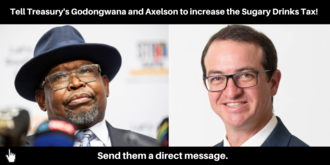
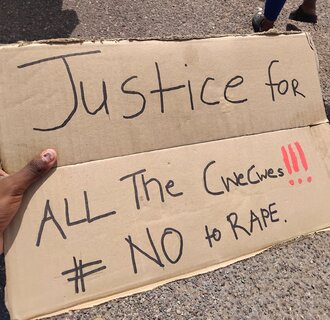.jpeg)
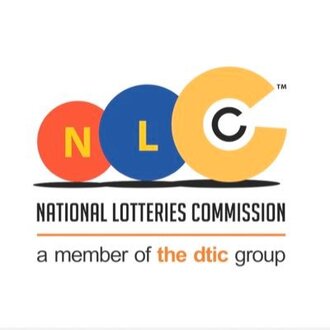
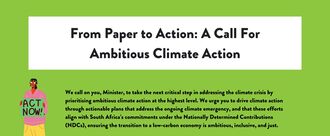.jpg)
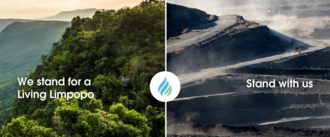.png)
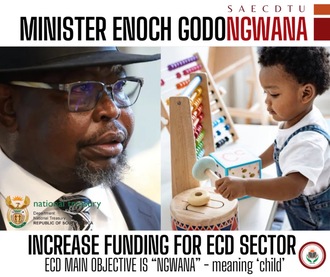
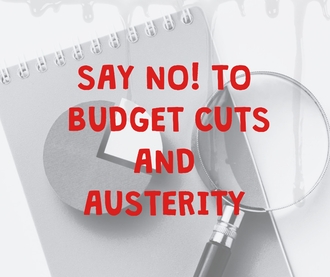
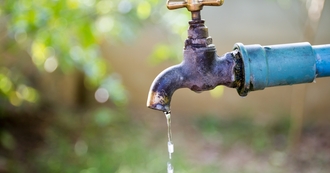
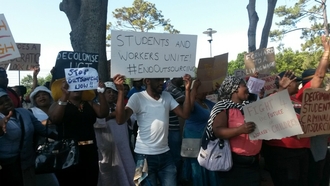
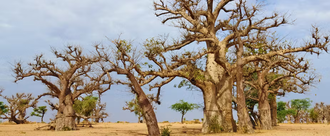
.png)
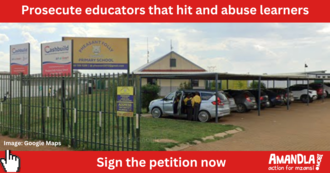.png)